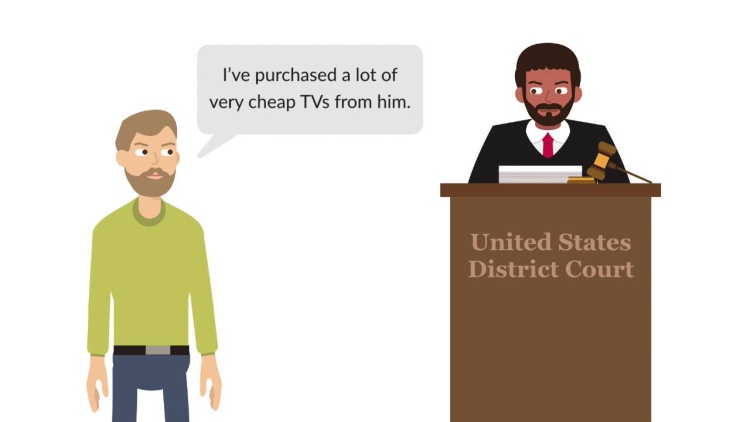Huddleston v. United States
United States Supreme Court
485 U.S. 681 (1988)

- Written by Sean Carroll, JD
Facts
Huddleston (defendant) was charged with possession of stolen property and selling stolen goods—charges arising out of a shipment of stolen videocassette tapes. The material issue at trial was whether Huddleston knew the tapes were stolen. The prosecution sought to introduce evidence of two similar acts under Rule 404(b). The first such evidence was testimony that Huddleston sold a large quantity of new televisions for $28 each; the other was testimony that Huddleston was arrested one month after the cassette-tape theft for offering to sell $20,000 of appliances to an undercover Federal Bureau of Investigation agent for $8,000. Huddleston could not produce a bill of sale for any of the goods and testified that he acquired the tapes, televisions, and appliances from Leroy Westby. The trial court allowed the admission of the similar prior acts, and Huddleston was convicted of possession of stolen property. Huddleston appealed
Rule of Law
Issue
Holding and Reasoning (Rehnquist, C.J.)
What to do next…
Here's why 907,000 law students have relied on our case briefs:
- Written by law professors and practitioners, not other law students. 47,100 briefs, keyed to 996 casebooks. Top-notch customer support.
- The right amount of information, includes the facts, issues, rule of law, holding and reasoning, and any concurrences and dissents.
- Access in your classes, works on your mobile and tablet. Massive library of related video lessons and high quality multiple-choice questions.
- Easy to use, uniform format for every case brief. Written in plain English, not in legalese. Our briefs summarize and simplify; they don’t just repeat the court’s language.





